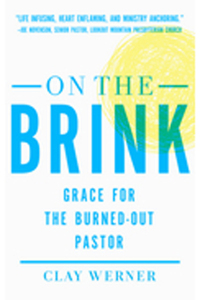Is reading the Bible or praying when you don’t feel like it kind of fake? Shouldn’t we wait till we have true feelings to be close to God? Shouldn’t it be authentic?
Values Trump Feelings
Consider what would happen if we applied the same logic to everything else in life. If I only stayed true to my wife when I felt like it, I would have blown our marriage by now. In fact, we often do things we don’t feel like doing: going to work, disciplining our kids, or having a difficult conversation with a spouse or friend. Why do we do these things? Because, in those instances, we have a value greater than our feelings. Our value trumps the feeling. This is also true in Christianity. We may not feel like praying or reading the Bible, but that shouldn’t lead to abandoning Scripture reading, meditation, and prayer. Why? Because we possess a value greater than feelings. That value is worship. We believe worshipping God–knowing him, enjoying him, receiving and applying his wisdom to our life–is more important than anything else.
What Is Authenticity?
But isn’t it inauthentic to pray and read the Bible when if you don’t feel it? If I read the Bible or pray, particularly I don’t feel like it, isn’t that just fake? Well, would you say that about the police officer who puts himself in the line of fire when he’d rather be at home with his family, or the mom who patiently corrects her children when she actually feels like screaming and pulling her hair out? Would you charge a friend with inauthenticity because they sat down to confront a friend about their alcoholism when they didn’t feel like it? Authenticity can’t be measured by feelings alone. What, then, determines authenticity?
Authenticity depends on what you want to be true to. It’s relative. It isn’t inherently noble. What determines the nobility of our authenticity is the thing we trying to be true to.
If you want to be true to your company or personal work ethic, you’ll go to work whether you feel like it or not. If you want to be true to friendship, then you’ll have the hard conversation with your friend. If you want to be true to Jesus Christ, you’ll talk to him, and listen to his Word, whether you “want†to or not. Worship trumps feelings. Worship is Spirit and truth, not truth and feeling (John 4:24). This side of heaven, our feelings will come and go, but with the Spirit’s help we can be faithful and true till heaven reaches us. If you are a Christian, then you’ve said the overarching value of your life is the worship of God, the Father, Son and Spirit.
Truly Authentic
Reading the Bible and praying, then, is actually one of the most authentic things you can do because it reminds you that you are more than your feelings; you are Christ’s. You believe Christ has given you a more authentic way of living, in and with him, more than anything else can offer. Reading the Scriptures then, reminds us of the truth, helps us live in line with our true Self in Christ. The person who lives this way will, over time, discover deeper joys, develop sturdier character, and become more authentic (not less). Why is this? Because Scripture and prayer bring you near to the overarching truth of your life over and over again. They form worship.

